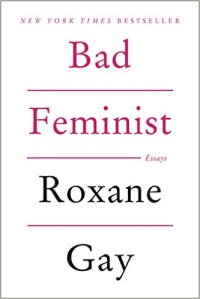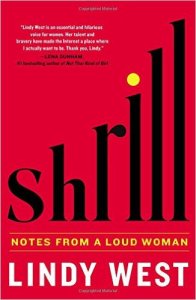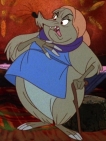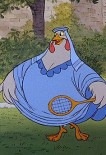*Author photo from The Guardian.
Shrill (May 2016, Hachette Books) is a collection of 19 essays from comedian/journalist Lindy West, who writes for The Guardian and has pieces at many websites, such as Jezebel, New York Times, GQ, and The Stranger. I heard through a Tweet that her collection was being published, and I was instantly drawn to what I learned: West is smart, precise, funny — and fat. As a fat lady myself, I wanted to know more. Rarely do fat female role models appear in the United States (um, or elsewhere), so I put a hold on a copy at the library.
After I got into the book, I realized that I’ve read some of West’s articles in the above mentioned publications. I don’t often remember a writer’s name when I read an online article, but the piece she wrote that I remembered clearly describes the time a troll created an e-mail address and Twitter account using West’s recently deceased father’s name to humiliate and torment her. And then he later came out and apologized to her, which never, ever happens. The main themes of Shrill are fat shaming, rape culture, comedy, abortion, and trolls, and they’re all examined through a feminist lens.
Anytime I read about feminism, I instantly compare the work to Roxane Gay’s Bad Feminist. Gay is probably the most notable feminist of our generation. After reading Bad Feminist, I didn’t feel great. I was mostly confused and disappointed. It seemed like she was either telling personal stories, talking about how she likes things that most feminists feel oppress women (like Robin Thicke’s “Blurred Lines”), and listing what she likes and hates (movies, books, etc.). I felt like Bad Feminist started as a listicle and ended up a book. Thesis statements? Not really. Organization? More like meandering. A call to action? I have no idea what Gay thinks feminists can do to move forward. I do not write to demean Gay’s book. But I do know that many other readers, according to Goodreads, found the same issues and are perhaps seeking a different contemporary feminist voice.

Yes, West is a white woman and Roxane Gay is Haitian-American, but both women talk about intersectional feminism, so West is a good alternative if you are also an intersectional feminist. Both women included personal essays that appeared to have little to do with feminism. Both are hugely into pop culture (especially Twitter). But I felt West’s writing was clearer, more rhetorically sound, and presented solutions to problems feminists encounter.
Some examples of West’s intersection feminism include the socioeconomic. She talks openly about her abortion (and created #shoutyourabortion to de-stigmatize abortion rights) and how she discovered, “It didn’t occur to me, at the time, that there was anything complicated about obtaining an abortion. This is a trapping of privilege: I grew up middle-class and white in Seattle, I had always had insurance, and, besides, abortion was legal.” Later in the essay, West states what privilege is, referring to the abortion clinic making her promise to pay her bill instead of charging her up front like they’re supposed to: “Privilege means that it’s easy for white women to do each other favors. Privilege means that those of us who need it the least often get the most help.”
West again touches on intersectional feminism when she discusses fat-shaming, which makes fat women feel like they don’t deserve anything. She argues, “Denying people access to value is an incredibly insidious form of emotional violence, one that our culture wields aggressively and liberally to keep marginalized groups small and quiet.” Throughout Shrill, West considers feminism that benefit her more than women of color, with disabilities, etc.

The best part of Shirll is that West helped me “figure out” my own feminism. While I feel that rape jokes are never, ever funny, I would not have an answer that appeased the folks who shout about freedom of speech, say “you’re just not funny,” or call you “too sensitive” for your claims. But West breaks it down. When she was younger, West constantly went to comedy clubs and saw rising stars (who are now super famous), like Patton Oswalt, Mitch Hedberg, Marc Maron, and Maria Bamford.
One night, a comedian was telling a joke about herpes, and everyone was laughing. Except West. She analyzes why she didn’t laugh. Because the comic wasn’t making fun of his herpes, the joke was designed to shame people who have herpes. Statistically, West points out, many people in the room have herpes. So why are they laughing? They laugh, she argues, because if they don’t, they will be outed for having herpes. The joke works “brilliantly”because there is no chance that people won’t laugh, essentially, because the comic was lazy enough to embarrass everyone into laughing. Those who don’t have herpes are now vindicated in their feelings that people with herpes are gross. This moment changed the way West felt about comedy, which led her into arguing publicly that rape jokes are not funny.
Rape jokes are not funny, West points out, because they come from a person of power profiting on the traumas of people with no power. She compares it to the CEO of a company getting up at the Christmas party and roasting the janitor for barely making enough money to feed his family. Similarly, a white man will most likely never be raped, nor will he fear being raped, nor does he have a game plan for how to avoid being raped and what to do if raped (women like me know these plans in detail). Therefore, the joke is funny to men. West was invited to debate Jim Norton on a TV show over the issue. If you know Norton, you know he’s a bit of a dark comic, and I’m not surprised he’s pro-rape jokes.

What’s interesting is that West’s rhetoric was sound, but she didn’t change Norton’s mind. Off camera, he said he agreed that it’s wrong to take advantage of victims, but he was more concerned about free speech for comics. Norton felt that comedy didn’t translate into real life — that people who believe rape jokes are funny won’t go rape people. West disagreed, and then something happened…
Jim Norton fans bombarded West’s Twitter feed, e-mail, the comment section sof her articles — all over the internet. They wrote things about raping her, thinking she’s too fat to rape, cutting her up with an electric saw, etc. Norton had to admit that his fans were being aggressive and translating the “right” to tell rape jokes into real-life rape threats. He even wrote an article asking his fans to cool it. This was in 2010. West notes that since then, the comedy scene has changed; comedians are changing their tune. Thinking about how speaking up helped, and how using the rape threats to make a point helped, changed the way I thought about treading the internet, and about the maxim “Don’t Feed the Trolls,” with which West disagrees. Why should women be silent?
West also argues that fat is a feminist issue. She notes, “You have to swallow, every day, that you are a secondary being whose worth is measured by an arbitrary, impossible standard, administered by men.” West also describes how as a fat child, she was so ashamed of her body that it kept her silent. Women, both online and in life, are silenced constantly. Heartbreakingly, West explains that as a child, “[she] got good at being early on — socially, if not physically. In public, until [she] was eight, [she] would speak only to [her] mother, and even then, only in whispers, pressing [her] face into her [mother’s] leg.” West doesn’t have these earth-shattering traumas to report (if I compare her to Jessica Valenti, for example, whose new memoir catalogs all the sexual trauma she’s experienced). Yet, she is affected for most of her life by fat-shaming and the way it shuts her down as a woman, helping me to think more about my own silences — and the voices we’re missing from other fat people. There’s no need to compare traumas (sexual, emotional, physical) and decide whose is worse by some made-up standard. Traumas that shut women down are all appalling.
No matter what she’s writing about, West is ridiculously funny. She starts Shrill by describing all the fat female role models from her childhood, a list that included Auntie Shrew, Lady Cluck, The Trunchbull, and Ursula the Sea Witch. There are almost none, is the point. But did you ever wonder why King Triton is so ripped? West writes, “History is written by the victors, so forgive me if I don’t trust some P90X sea king’s smear campaign against the radical fatty in the next grotto.” Oh, man! I almost died!




In a nutrition class West signs up for, back when she felt like she needed to lose weight to be somebody, the teacher tells the students that if they get hungry after breakfast at 7Am and before lunch at 1PM, they should have 6 almonds. If they’ve gone over their “almond allotment, try an apple. So crisp. So filling.” West remembers, “Then everyone in nutrition class would nod about how fresh and satisfying it is to just eat an apple.” Lindy West labels this scene…wait for it… “the Apple Appreciation Circle-Jerk Jamboree.” I laughed so hard about this I called my mom and read her the scene! My mom, too had experienced such a class years ago.
Here’s one more great line: West compares her first experience in first-class flying and compares her seat to the ones in coach: “It has succeeded at being a chair instead of a flying social experiment about the limits of human endurance.” I read this passage at work and started cackling, despite the dead silence of the building.
Sometimes I wondered if I found Shrill so terribly funny and relevant because I am a fat woman. I tried reading passages to my husband, who didn’t laugh as much as I did, but he’s also a thoughtful person who may dismiss the humor and feel bad, wondering instead if I’m feeling bad for having read about fat-shaming and rape. My verdict is you must read this book. Lindy West is a feminist who’s doing something; she fought –with results — the fat-shaming that became acceptable around 2005, rape jokes in 2010, and internet trolls who make the internet unsafe for women.

Awesome review of this book, Melanie! I would really love to read this one. I loved that you talked about the things she’s done outside of her book. I didn’t know much about her before. She sounds pretty amazing.
LikeLiked by 1 person
I thought I didn’t know her, but then some of her scenarios sounded familiar, and it turned out I HAD read some of her articles before. Thanks for your kind words, Naomi!
LikeLiked by 1 person
This sounds like an excellent and valuable book as well as a very funny one. Your comment about your husband’s reaction is fascinating (sounds like he’s a good man, though!). Have you read Caitlin Moran’s feminist stuff? You might like that, too. She comes from a position of early poverty and is really good on how women are patterned to behave.
LikeLiked by 1 person
I haven’t read Moran. People seem pretty torn on her on Goodreads.
LikeLike
I have issues with her but her work does seem to be raising awareness among younger women and I think it’s worth reading. She does assume everyone has been taken in by their conditioning, and she is also quite rude (as in dirty) which puts some people off!
LikeLiked by 1 person
I’m so eager to read Shrill! Did you hear West on This American Life last year when she confronted the troll who set up the fake twitter account to tweet as her deceased dad? It’s one of the best segments I’ve ever heard on the show: http://www.thisamericanlife.org/radio-archives/episode/545/if-you-dont-have-anything-nice-to-say-say-it-in-all-caps
LikeLiked by 2 people
I didn’t listen to it, but she writes about it in Shrill and I read her response article in the Guardian. http://www.theguardian.com/society/2015/feb/02/what-happened-confronted-cruellest-troll-lindy-west
LikeLiked by 2 people
I am blown away by this article. Wow!
LikeLike
I’ve been seeing Shrill more and more and you defnitely convinced me to give the book a try. I do appreciate that she discusses her own privilege. I don’t know much about the North American fativism movement, so this sounds like a good one to learn more. I’ve seen these critiques of Bad Feminist, but I do enjoy lots of her articles so I’m still very excited about Hunger. Fingers crossed it’ll be coherent and organized 🙂
LikeLiked by 2 people
I know. I want to read Hunger, too. American fat activism is getting better, though still needs tons of work.
LikeLiked by 1 person
This sounds like an amazing book and has just shot to the top of my TBR. I love reading analysis of comedy, and like you I have sometimes struggled to articulate why a specific joke isn’t funny. This also sounds like it addresses fatness and feminism really well. I want to read Fat is a Feminist Issue by Susie Orbach, so this would tie in nicely with that.
LikeLiked by 1 person
I haven’t heard of the Orbach book! Thanks for the rec!
LikeLike
[…] Shrill by Lindy West: a book of essays about being fat, when comedy bullies people into laughing, and abortion rights. […]
LikeLike
[…] you know? LOOK AT THEM! Whew, that’s easy. I believe it was Lindy West who wrote in her book Shrill that one way to get over fat prejudice is to look at fat people until it’s normal to see a […]
LikeLike
[…] so rarely distributed, I was shocked before I could normalize what I was reading. I was reminded of Shrill by Lindy West in which the author sat and looked at pictures of fat women for hours until they became normal to […]
LikeLike
[…] I connect to when I read her work, whether it’s her online pieces or the essay collection Shrill. I feel “safe” with this author poking at culture (is that weird to say?). My review of […]
LikeLike
[…] stating that West wrote this book during the pandemic. Her first two collections of essays, Shrill and The Witches Are Coming, were both serious, she says, and given that her roots are in comedy, […]
LikeLike
[…] read and loved Lindy West’s (she/her) two previous works of nonfiction: Shrill and Shit, Actually. The first was West’s memoir, in which she uses humor to share her story, […]
LikeLike
Loved this article. I had seen the tv show which I wanted to love but just kind of liked. I can tell I would love the book.
LikeLike
[…] time is spent on the aspects that make her work unique from other books that read similarly (see Shrill, You Have the Right to Remain Fat, Bad Fat Black Girl, and Fat, Pretty, And Soon to Be Old), which […]
LikeLike